Volume Fifteen – 1939 – 1945
The Second World War
GAS MASKS AND THE BLACKOUT
EVACUEES
DUNKIRK
FRENCH COMPLACENCY
THE BLITZ
THE JAPANESE BOMBING OF PEARL HARBOUR
‘GERMANY FIRST’
MONTY’S CHARACTER
VERA LYNN
THE BOMBING OF COLOGNE
HITLER PREPARES FOR THE END
VE DAY
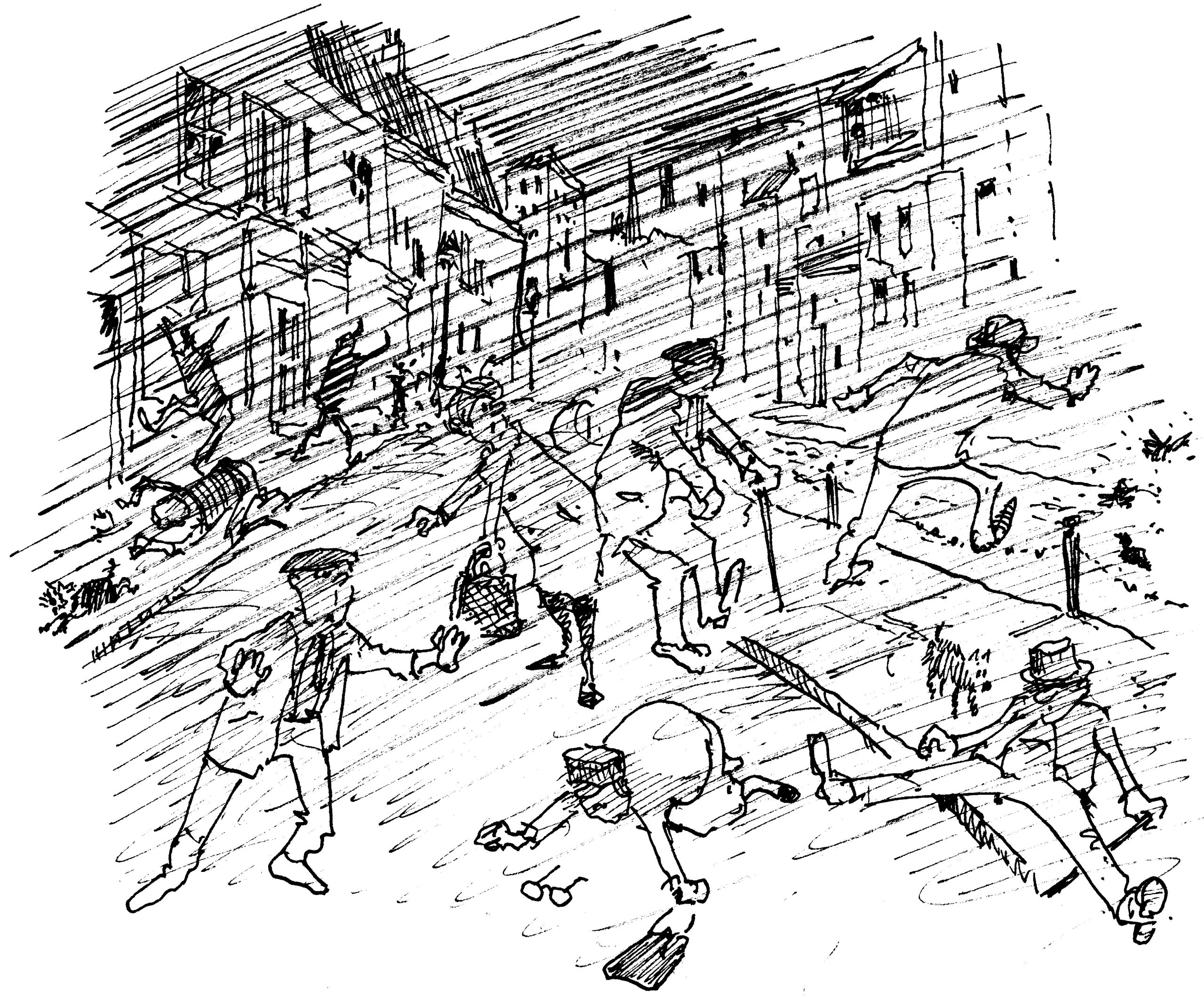
GAS MASKS AND THE BLACKOUT
Although everyone was braced for war,
Nothing very much happened for two, four,
Six… no, eight months. However, ‘be prepared’
Was the message. At first, people were scared.
They all carried their gas masks in the street,
In cardboard containers, all very neat.
Some kids had Mickey Mouse ones, rather sweet.
The hospitals were cleared, every bed
Kept free for victims of air raids instead.
Theatres and cinemas closed their doors,
By order. There was rapturous applause
When they welcomed audiences again,
Just a few weeks later. A constant pain
Was the blackout. Show a mere chink of light,
The ARP were after you all right!
The shops quickly ran out of black fabric:
Old clothes and curtains had to do the trick.
Walking home at night was fraught with danger.
Pitch dark! Bumping into the odd stranger
Was a hazard, but there was worse than that:
Falling down steps, tripping over the cat,
Walking into canals, or through glass doors,
And tumbling over onto all fours.
One person in five sustained injury
In the blackout – crashing into a tree,
Or missing the kerb unexpectedly
And twisting an ankle. Seriously,
The risk was real. In September, we’re told,
Accidents on the roads increased twofold,
With twice as many people killed by cars
As in August. Even the twinkling stars
Were of little comfort. A tiny bit
Of light was permitted, a narrow slit
In a car’s front headlamps, but that was it.
The streets were still very dark and ill-lit.
Small hand torches were finally allowed
For pedestrians (bloody, but unbowed),
Dimmed by two layers of tissue paper
To minimise the beam. What a caper!
Sandbags protected public monuments,
Offices and government departments
From bomb damage. This made absolute sense –
Or would have done, except for the silence.
Balmy weather added to the pretence.
The people’s ‘carry on’ mentality
Was a sign either of their sanity
Or of wilful blindness. Banality?
Perhaps. Some lovers, on the other hand,
For reasons not that hard to understand,
‘Took the plunge’. Well, you have to live your life.
More engaged couples became man and wife
In those first few weeks than ever before,
As soon as they heard there would be a war.
The jewellers even ran out of rings,
Which now came off curtain rods, of all things.
Who knew what might happen? No time for tears.
They could be apart for months, if not years.
They would meet again, though who could say when?
Tens of thousands got married there and then.
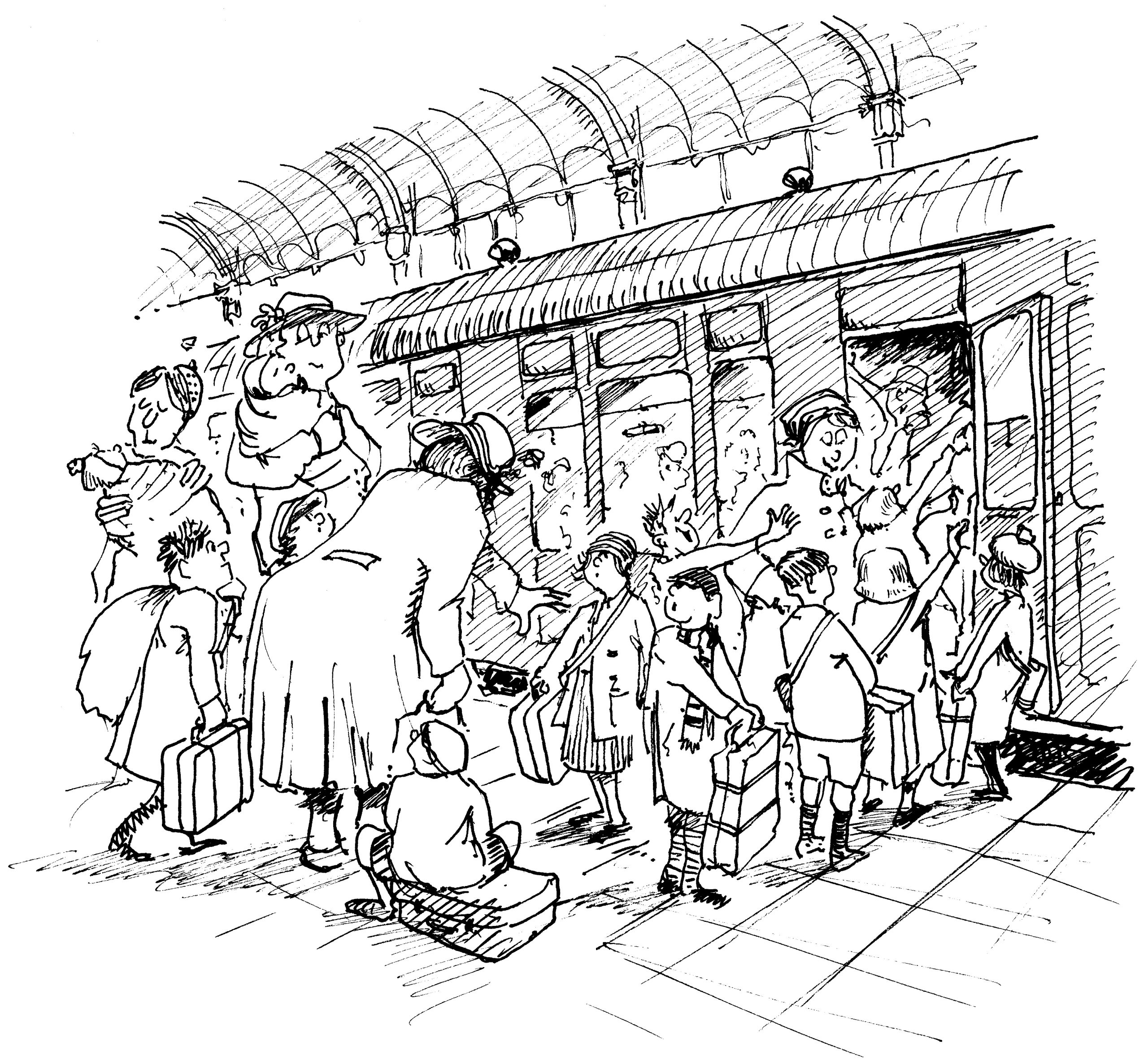
EVACUEES
Others there were heading for the country.
Spare a thought for the poor evacuee.
Over three short days a mighty campaign
For mass evacuation, by train,
From Britain’s great cities was underway –
An incredible feat, I have to say.
Had the feared aerial bombing occurred,
The tragic loss of life, you have my word,
Would have been huge. Men, women and children,
Every law-abiding citizen,
Was at the gravest risk of being maimed,
Or worse. Millions of kids, it was claimed,
Were in danger. The expectation
Was that the planned evacuation –
Completely voluntary, by the way –
Would involve four million. Come the day,
About one and a half million went.
This comprised some forty-seven per cent
Of schoolchildren from the cities. Others
Included pregnant women and mothers
With children under five. Older children
Travelled unaccompanied, Bill and Ben
(Siblings, perhaps?) or, on her tod, wee Bren.
When I say ‘travelled unaccompanied’,
A few adults went with them, in a bid
To check things didn’t go wholly awry –
Not always with success, but worth a try.
As the trains pulled out of the termini,
Mothers wept. The thought of waving goodbye
(For how long?) was more than many could bear.
The children were travelling… who knew where?
Clutching their gas masks, sandwiches perhaps
(The lucky ones), but certainly no maps,
They had luggage labels with their names on.
Many of the poor souls were woebegone,
With tears streaming down their little faces.
Only a few had bags or suitcases,
Warm clothes for the winter, shoes with laces,
Or the faintest idea what lay in store.
After four long months of the phoney war,
By January, with no bombs falling,
The strain on families was appalling.
Over one million evacuees
Returned home. The majority of these
Remained in the cities throughout the Blitz.
Evacuation had been the pits.
Yet many evacuees, those who stayed,
Had a great time. They were far from dismayed.
Cows, they found, were bigger than dogs! They played
In green fields. What was this? A real bed?
Upon arrival, some had crept, instead,
Into a bottom drawer to go to sleep,
As they used to at home. You want to weep.
Some had never cleaned their teeth in their lives,
Or run hot water. The record survives:
Flannels, clean sheets, pillows… all alien
To these poor, underprivileged children.
There were endless cases of bed-wetting –
Needless to say, extremely upsetting.
For many evacuees were nervous
And unhappy (as well as verminous).
To their hosts, the level of poverty
They witnessed for the first time, properly,
Came as a profound and unwelcome shock.
Their social consciences took a knock –
Those who were sensitive enough, that is.
The whole affair was a dreadful business,
An eye-opener, they came to see that.
This did long-term good or I’ll eat my hat.
Even the Prime Minister, Chamberlain,
Expressed his horror. With a war to win,
There was little that could be done right now,
But folk sat up and took notice, and how.
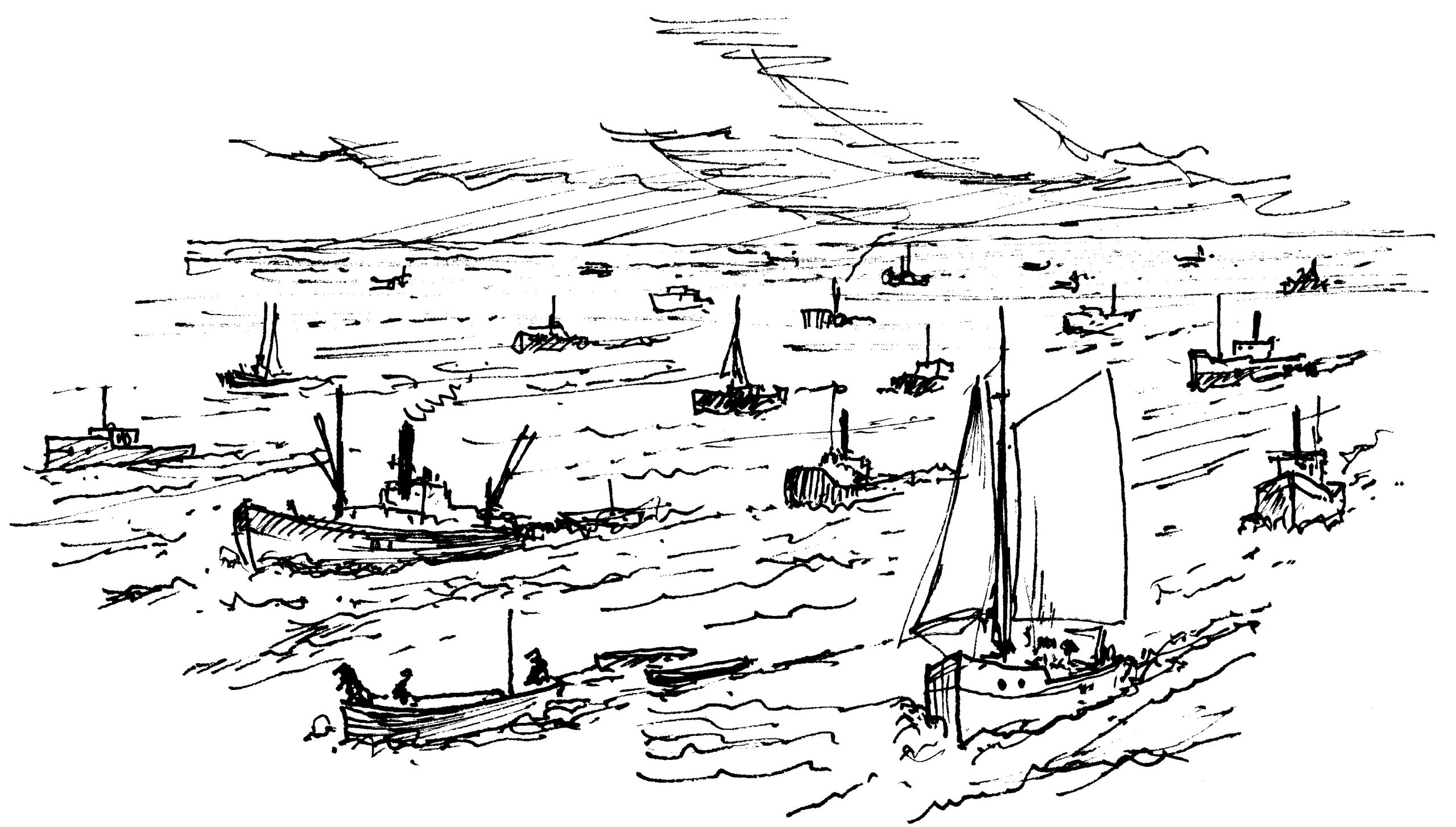
DUNKIRK
For the BEF, General Lord Gort –
A solid, unimaginative sort,
But able and practical nonetheless –
Was confronted with the most ghastly mess.
Gort was sure, by the 25th of May,
That France was putting up a poor display
Of resistance. Weygand’s counterattack
(Such as it was) was failing to hold back
The Nazi assault. Orders Gort received
To return south left him mightily peeved.
The chances of Arras being relieved,
Or Amiens, come to that, were so slim
That he refused to obey. Good for him!
Instead, the General stuck his neck out.
He knew the BEF without a doubt –
If they sought to do France’s dirty work –
Would be massacred. Cut off at Dunkirk,
His sole option was to put to sea
And to evacuate. It seems to me
That the General, single-handedly,
Discharged a rare responsibility.
As early as the 26th of May,
The withdrawal began. We know, today,
That the total number of troops rescued,
And saved from lifelong German servitude
(Or worse), numbered 200,000 Brits
And more than half as many French. Pickets,
Paddle steamers, fishing boats and dinghies
Backed up the Royal Navy. It was these,
And their valiant crews, that pulled it off.
Hermann Göring, for once, incurred the wrath
Of Hitler. Göring had assured his boss
That Gort’s forces would be trounced, without loss,
By the Luftwaffe alone. Well, not so.
Churchill knew that Dunkirk was touch and go.
Code-named ‘Operation Dynamo’,
He warned the Commons (and the nation)
Not to have any expectation
That the proposed evacuation
Would bring more than ten thousand to safety.
No one was more realistic than he:
Members should prepare for very bad news.
Dunkirk was the mother of all rescues.
A variety of factors combined
To avert disaster. Hitler, you’ll find,
Made a grave error (from his point of view)
In his French campaign, one of very few.
He feared a weakness on his southern flank,
Viz. a challenge from the French, tank for tank,
Should he push further into northern France.
A temporary halt to the advance
Was ordered. Gerd von Rundstedt had seen fit
To press the Führer to sanction it.
Hitler, though it stuck in his throat, agreed.
So, the allied withdrawal could proceed
With greater confidence. The Brits had need
Of a breather and for once they got it.
Hitler, it seems, did little to stop it.
He relied on Göring’s reckless promise
That the Luftwaffe (optimistic this)
Could wreak havoc on the allied units
Stranded at Dunkirk in north-eastern France.
The BEF now had a fighting chance.
The RAF, flying from home bases,
Put the Nazi bombers through their paces,
Inflicting some heavy casualties.
But the fight was far from being a breeze.
Evacuation came at a cost:
Nearly two hundred fighter planes were lost;
Six Royal Navy destroyers were sunk
And nineteen damaged – a sizeable chunk
Of the British air and naval defence.
Churchill, ever the voice of common sense,
Was of course relieved. He made no pretence,
However, that this was a victory.
Of all the withdrawals in history,
Dunkirk was the boldest, all said and done.
But the PM was clear: “Wars are not won”
(He was right) “by evacuations.”
Dunkirk was one of those occasions
When benign forces all came together.
The Channel was a mill-pond. The weather
Was perfect. To their eternal credit,
The brave Belgians fought on with spirit,
Their beleaguered forces doing their bit,
As even Hitler was forced to admit.
The most astonishing aspect of all
Was the way the British answered the call.
An urgent appeal on the BBC
Led to volunteers putting to sea
In any vessel that was fit to float:
Cabin cruisers, yachts, the odd rowing boat,
River launches… The flotilla numbered
(Light craft and the like) over eight hundred.
The Royal Navy too turned up in force
And was largely responsible, of course,
For the majority of those rescued.
But it was the ‘weekend sailors’ who crewed
This scratch armada, these gallant heroes,
Who, I’m pleased to say, got up Hitler’s nose.
The news, as Churchill knew, was less than good.
The BEF, it should be understood,
Left all their guns and vehicles behind.
Many British soldiers were resigned
To a grim life as prisoners of war:
Some 50,000 poor victims or more.
In the early French campaign, as a whole,
Some 68,000, a fearful toll,
From the BEF, were casualties.
It is terrible figures such as these
That remind us of the realities
Of warfare, the sacrifice and the pain.
Pray God it may never happen again.
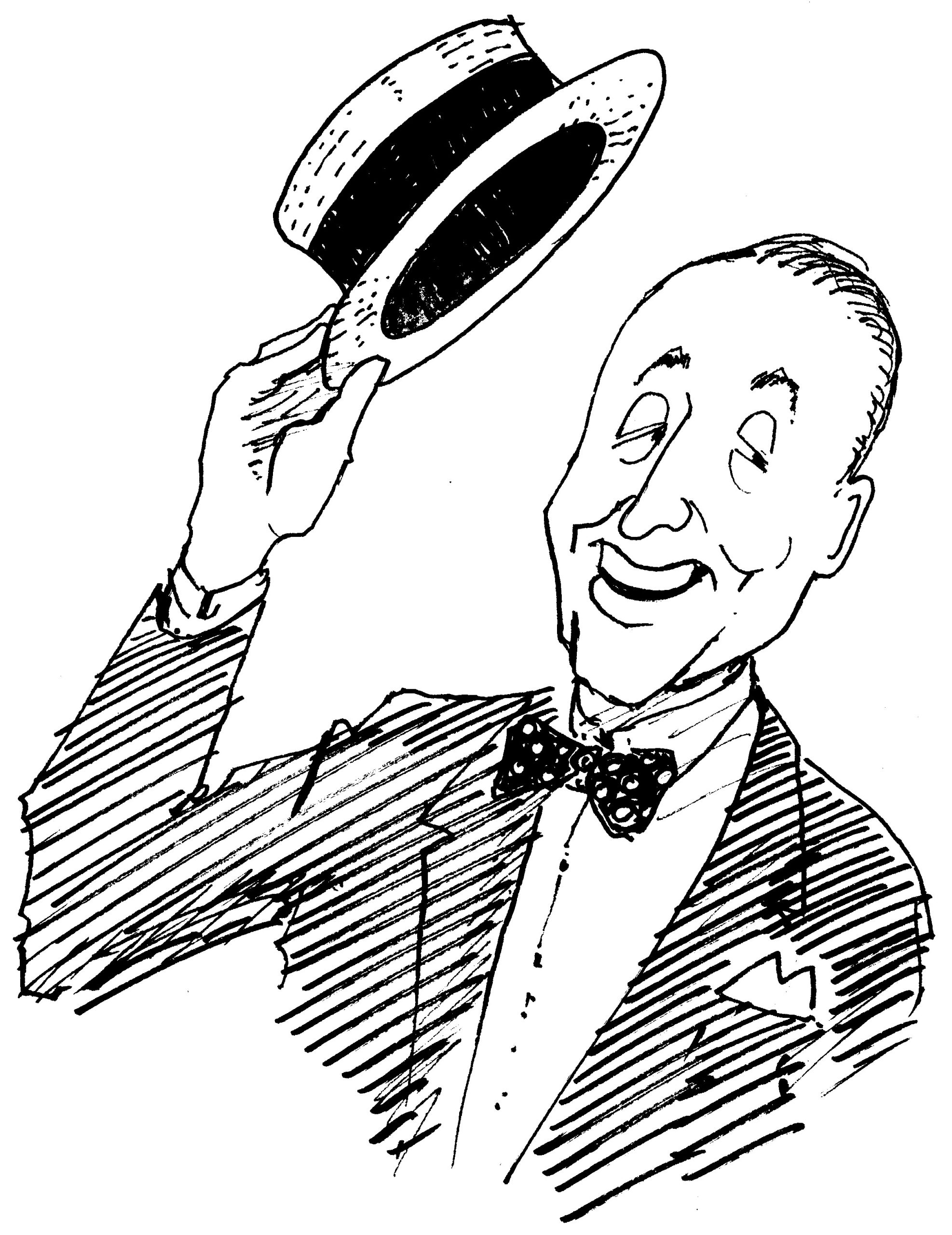
FRENCH COMPLACENCY
The French were hardly covered in glory.
Complacency had ruled the roost for years.
Parisians could not believe their ears
When the news broke. The Nazis on their way?
Impossible, on such a sunny day!
According to Maurice Chevalier,
“Paris sera toujours Paris!” The song
Would offer them comfort. How very wrong.
The French government had strung them along:
France was safe behind the Maginot Line,
So no need to panic. All would be fine.
They now fled the capital in despair.
The roads were blocked. Terror everywhere.
Young and old, nuns and priests, all took their chance.
It’s calculated that in northern France
Over ten million were on the move.
To keep catastrophe at one remove,
That was their thinking, but what did it prove?
Nothing. Few folk knew where they were going.
What of the future? No way of knowing.
The poor suffered the most, always the case,
While the rich had wheels. A perfect disgrace.
The German fighters strafed them from the air,
Women, with their babes in arms. Cue, despair.
On the 14th, the Nazis occupied
Paris. Five short weeks (you’ll be horrified)
It took the German army to achieve
What in the Great War, it’s hard to believe,
Had proved impossible in four long years.
Now, tragically, the blood, toil and tears
Of that dreadful conflict had gone to waste.
An Armistice was not to Reynaud’s taste.
He resigned his office, a broken man,
And France (quelle horreur!) was left to Pétain.
You’d hardly call it a negotiation,
But Pétain agreed to the occupation
Of northern and western France – including the coast
From Belgium round to Spain and, what mattered most,
Paris. The southern part of the country
Would be ‘governed’ by Pétain from Vichy.
This, in effect, became a puppet state.
Collaboration, at any rate,
Saved Pétain’s bacon. The old man was free
To exercise civil authority,
Under Nazi auspices, from Vichy.
All France’s colonies, amazingly,
Followed suit. Game, set and match to Germany.
One solitary figure, Charles de Gaulle,
Decamped to England. To the shame of all,
When he urged the French, against all the odds,
To resist, only a handful (ye gods!)
Rallied to his standard. He kept alive
The hopes of the Free French. France would survive.
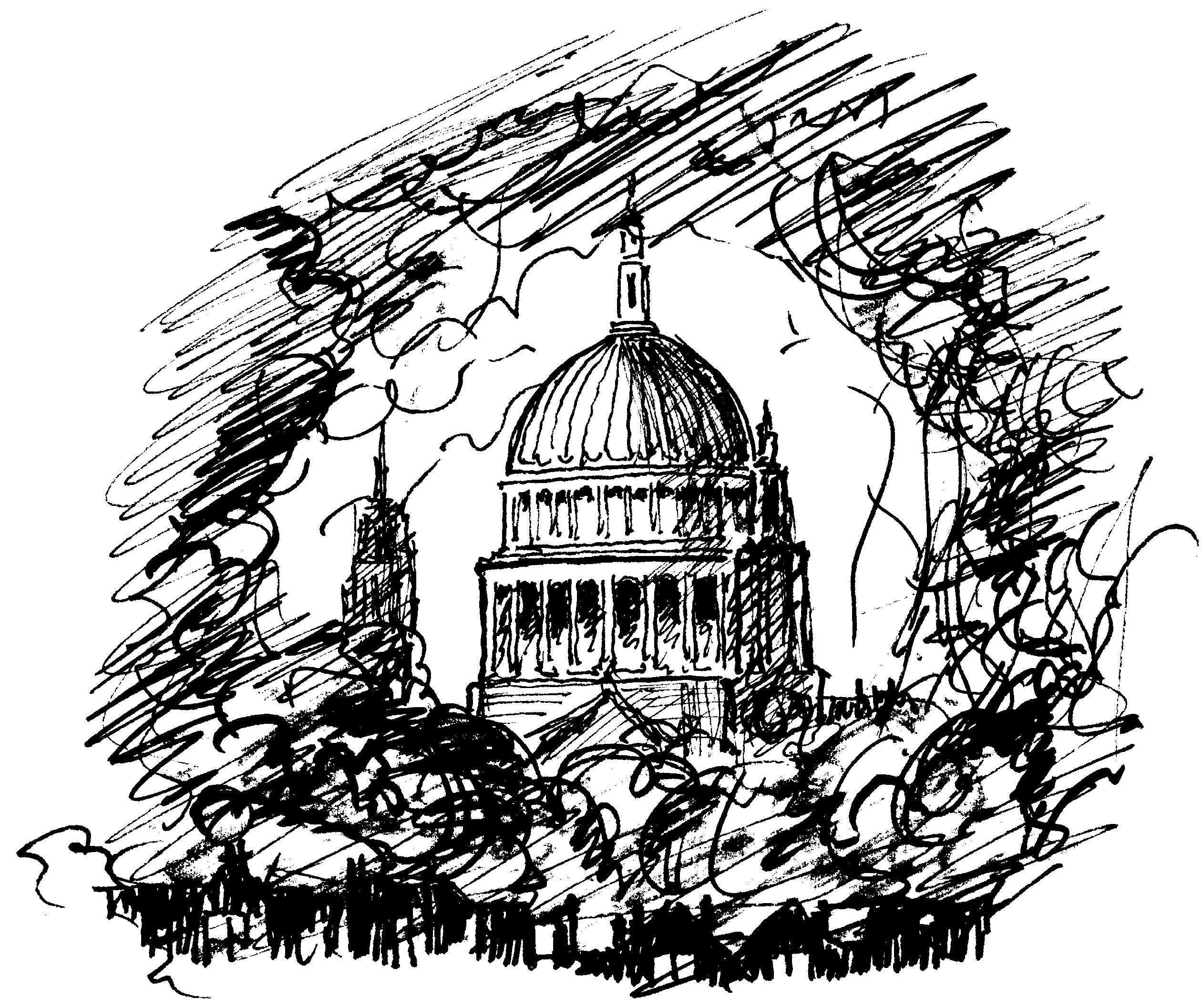
THE BLITZ
Britain’s fighter pilots were powerless
Against the night bombers. It was hopeless
To pretend otherwise. During the Blitz,
A citizen could be blown to bits,
And his house, in a matter of minutes.
The Luftwaffe’s random, but lethal hits
Caused, by the end of this first awful year,
Twenty-three thousand deaths, with more, I fear,
The next, right through to the middle of May.
It was recently I read with dismay
That more civilians died in the war
Than combatants (a lamentable score)
Up to September, 1941.
And for each victim (yes, every one),
Thirty-five, at least, were rendered homeless.
It really was a most terrible mess:
Three and a half million homes destroyed.
Londoners were far from overjoyed
On the 29th of December.
The Great Fire of London, remember,
Was in 1666 – the last one,
That is. Here was another. Poor London!
Incendiaries set the City ablaze.
One image, which will forever amaze,
Was that of St. Paul’s in the midst of it,
Missing, by a whisker, a direct hit.
A miracle. Christopher Wren’s spirit
Was surely at work here. Good for Sir Kit!
Some fifteen hundred fires blazed that night.
The great conflagration burned so bright,
The glow could be seen sixty miles away.
The fire fighters were fit for the fray,
But ran out of water. The Thames, alas,
Was at its lowest ebb. One fiery mass
Was the City, as it was left to burn.
Arthur Harris was watching with concern,
Or Air Marshal ‘Bomber’ Harris to you.
“Well, they are sowing the wind” (sadly true),
He observed. The citizens of Dresden,
And of Hamburg, would reap it, as and when.
In excess of twenty-five thousand died
In Dresden. Those who take Harris’s side…
Well, I’ve my view… I’ll leave you to decide.
Those poor souls who perished in the City
Numbered just one hundred and sixty-three –
There were so few residences, you see.
For every death we should show pity.
To reduce it to the nitty-gritty,
However, there can be no comparison
Between the sickening bombing of Dresden
And what occurred in the City that night,
Whatever the victims’ harrowing plight.
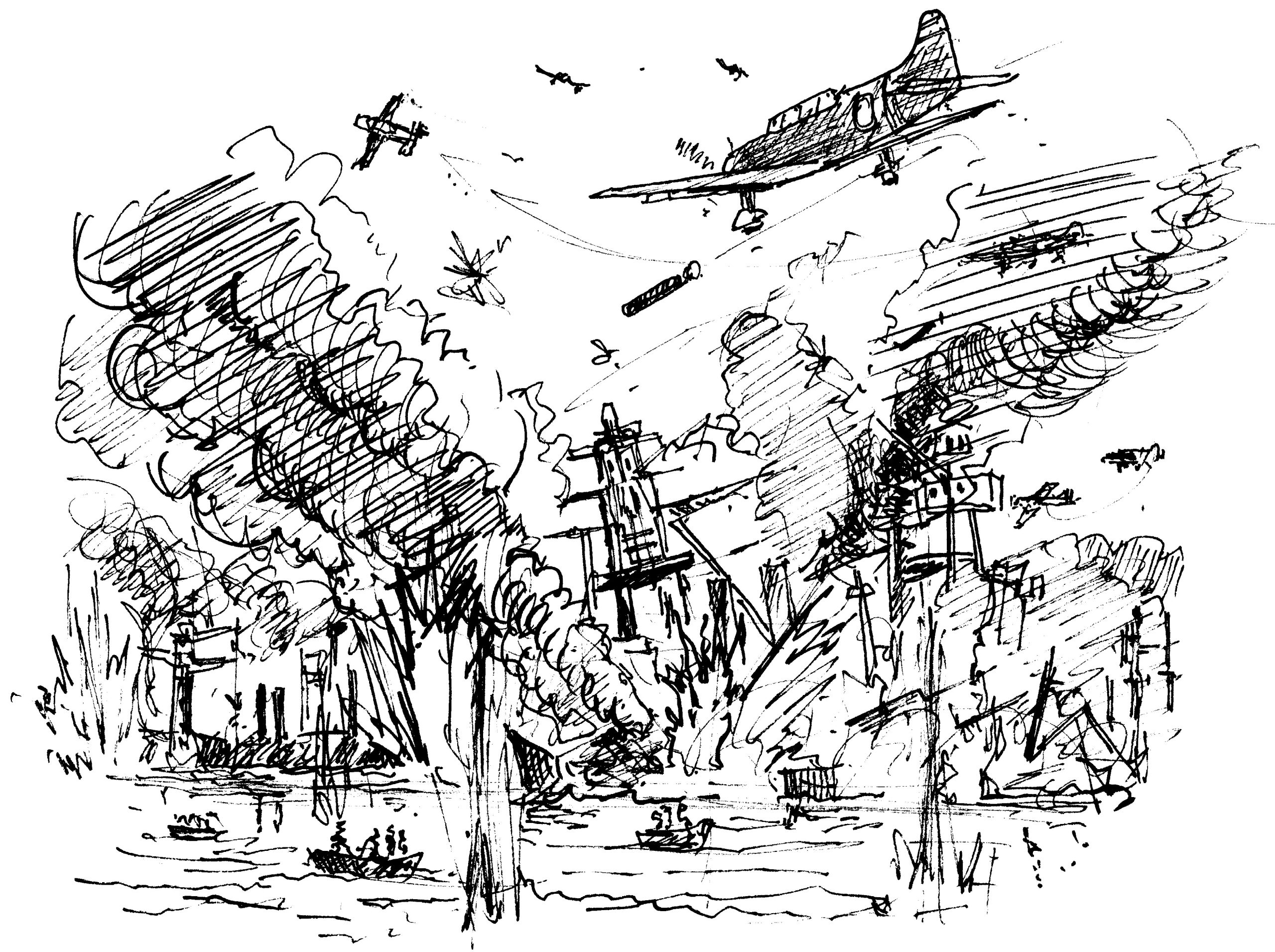
THE JAPANESE BOMBING OF PEARL HARBOUR
The course of history changed when the Japanese
Bombed the American fleet, with apparent ease,
At Pearl Harbour on the 7th of December,
A Sunday the US will ever remember.
Pearl Harbour was open to attack: aircraft
Parked on the runways (how the Japanese laughed);
Battleships in harbour, mostly understaffed,
All sitting targets; the anti-aircraft guns
Locked and unmanned. The fault must have been someone’s.
How could a navy have been so unprepared?
The Japanese triumphed. The US despaired.
Terrible carnage. A vision of hell.
More than three and a half thousand personnel
Were killed or seriously injured that day,
Most of them combatants. It’s hard to convey
The full extent of the devastation:
Four battleships sunk (an aberration);
Four severely damaged; ten more men-of-war
Put out of action; and (this I deplore)
Three hundred and fifty US aircraft lost.
The disaster was at very little cost
To the Japanese. They lost twenty-nine planes
And not one of their fleet, which perhaps explains
Why Pearl Harbour has gone down in history
As a famous military victory
For the Japanese and a catastrophe,
On an epic scale, for the US navy.
Yet it could have been far worse had it not been
For one fortunate circumstance, unforeseen
By the Japanese. For away, on repair,
Or on exercise (a miracle, I swear),
Were all four aircraft carriers, a nightmare,
Otherwise, for the whole American fleet.
The Japanese success was thus incomplete.
As the US navy got back on its feet,
It was far from business as usual –
But their aircraft carriers proved crucial.
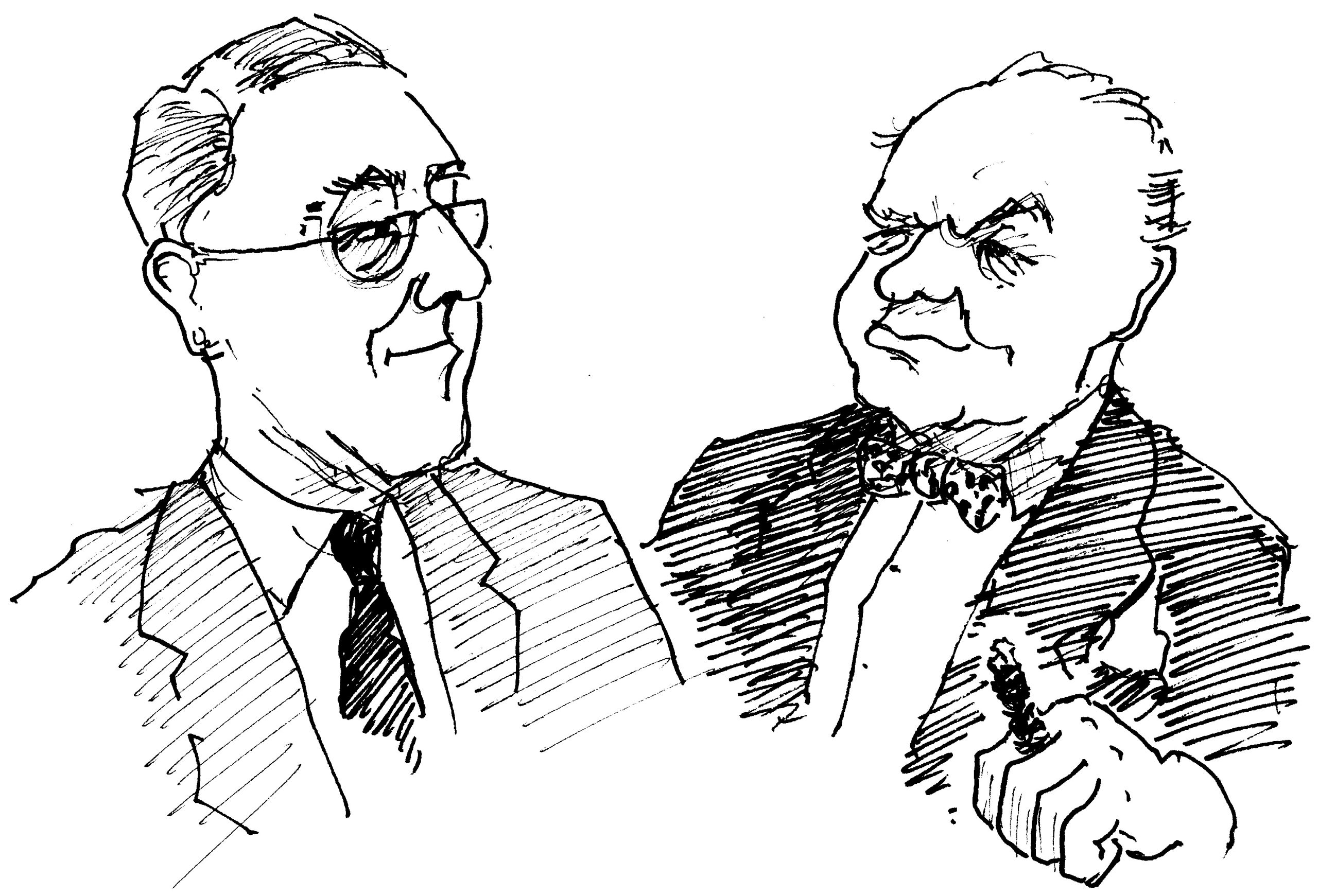
‘GERMANY FIRST’
Churchill and Roosevelt were in their prime.
The British Prime Minister lost no time.
He set sail on the 12th of December –
Five days after Pearl Harbour, remember –
And was met in person by Roosevelt.
As for Churchill, you wonder how he felt
As he took hold of Roosevelt’s “strong hand,
“With comfort and pleasure”. Though far from grand,
The President’s manner, you understand,
Was impeccable. Churchill was to stay,
As his guest, at the White House. Some dismay
This caused Churchill at first. What do you think?
The Roosevelts were stingy with the drink –
So at least the Prime Minister had heard.
Imagine anything quite so absurd.
Churchill’s needs were fully attended to,
Including his taste for alcohol. Phew!
Both Houses of Congress on Boxing Day –
This was an official holiday;
Who cared? – gave him a rousing reception,
Cheered to the rooftops, without exception.
His anti-German remarks were received,
The ever-sensitive Churchill perceived,
With less enthusiasm, he believed,
Than his anti-Japanese comments. Well,
No matter. They all got along just swell.
So, ‘Germany first’. But what did this mean?
Pearl Harbour had been largely unforeseen.
The Pacific was a naval affair.
The army needed a focus, but where?
In due course there would be occasion
For a European invasion
From England across the Channel, you bet,
But that would take time. Certainly not yet.
So the Americans gave the green light
To the North African campaign, a fight
They would join sometime in ’42,
Codenamed ‘Operation Torch’. Who knew,
At this early stage, what that would lead to?
Roosevelt had to build up his army, too.
But Churchill had won FDR’s consent,
In principle, so he was well content.
Next, the Canadian Parliament.
His speech was a corker! Some years before,
The French (who Churchill preferred to ignore)
Predicted that Britain, an utter wreck,
Would collapse within three short weeks, “her neck
“Wrung like a chicken”. You wonder they dared.
A lesser orator might have despaired –
Not Churchill. “Some chicken!” (a pregnant pause,
Impeccably timed) “Some neck!” Cue, applause.
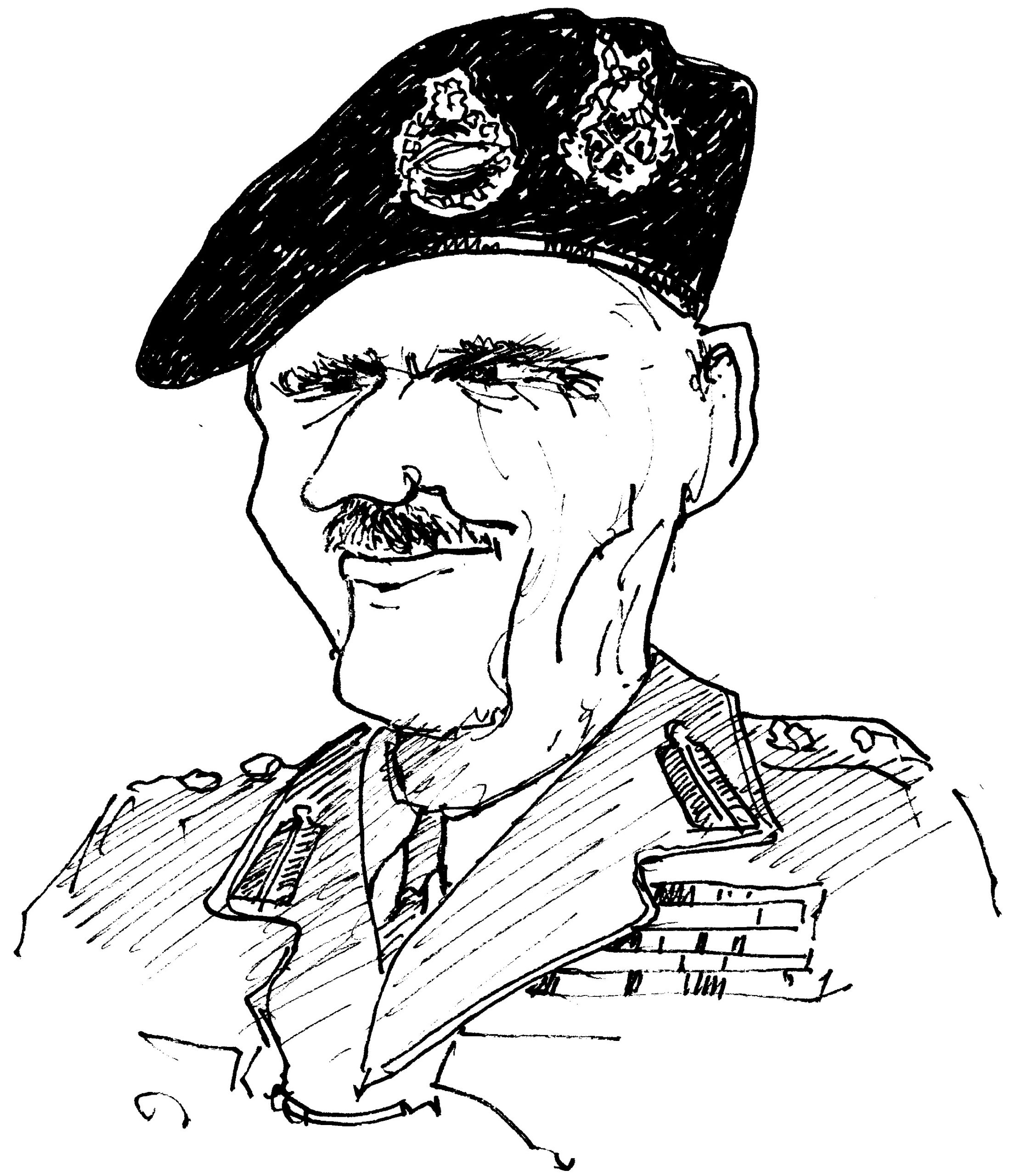
MONTY’S CHARACTER
Monty for his part was up for a fight.
Hyperactive and formidably bright,
And the most brilliant of strategists,
He suffered neither fools nor conformists.
A short man, with a beaky little nose,
Who ‘fluffed’ his r’s (endearing, I suppose),
Abrupt or polite as the need arose,
It was Monty’s eccentric little ways
That marked him out. Regimental berets,
With a wide array of badges, he wore;
His informal dress you couldn’t ignore –
Floppy pullovers and old corduroys.
For Monty, you see, was one of the boys.
He had a huge ego. He was ruthless
And focused. His energy was boundless.
He was ever brimming with confidence.
His sense of self-importance was immense.
Yet he played the popularity card
For all it was worth and in this regard
He met his men face to face, working hard
To command their respect. This was to prove
Crucial. Morale began to improve,
Within days, under Monty’s leadership.
His officers were urged to “get a grip”.
Orders were orders. Contingency plans
For withdrawal were burnt, as Monty fans
Outnumbered the cynics by ten to one.
The battle ahead was as good as won.
Yet Montgomery did not hesitate
To watch, until the time was ripe, and wait.
Preparedness was the name of the game
And Monty’s 8th Army won lasting fame
Only after achieving victory
Once they were ready. It’s no mystery
How this was accomplished. Montgomery
Refused to be drawn by Rommel’s attacks.
A cautious response of ‘mind your backs’,
That was enough. Meanwhile a thousand tanks –
Shermans, for which Alexander gave thanks –
New from America, were on their way.
Monty left nothing to chance. To this day,
We should all salute his thorough approach,
Painstaking, careful and beyond reproach.
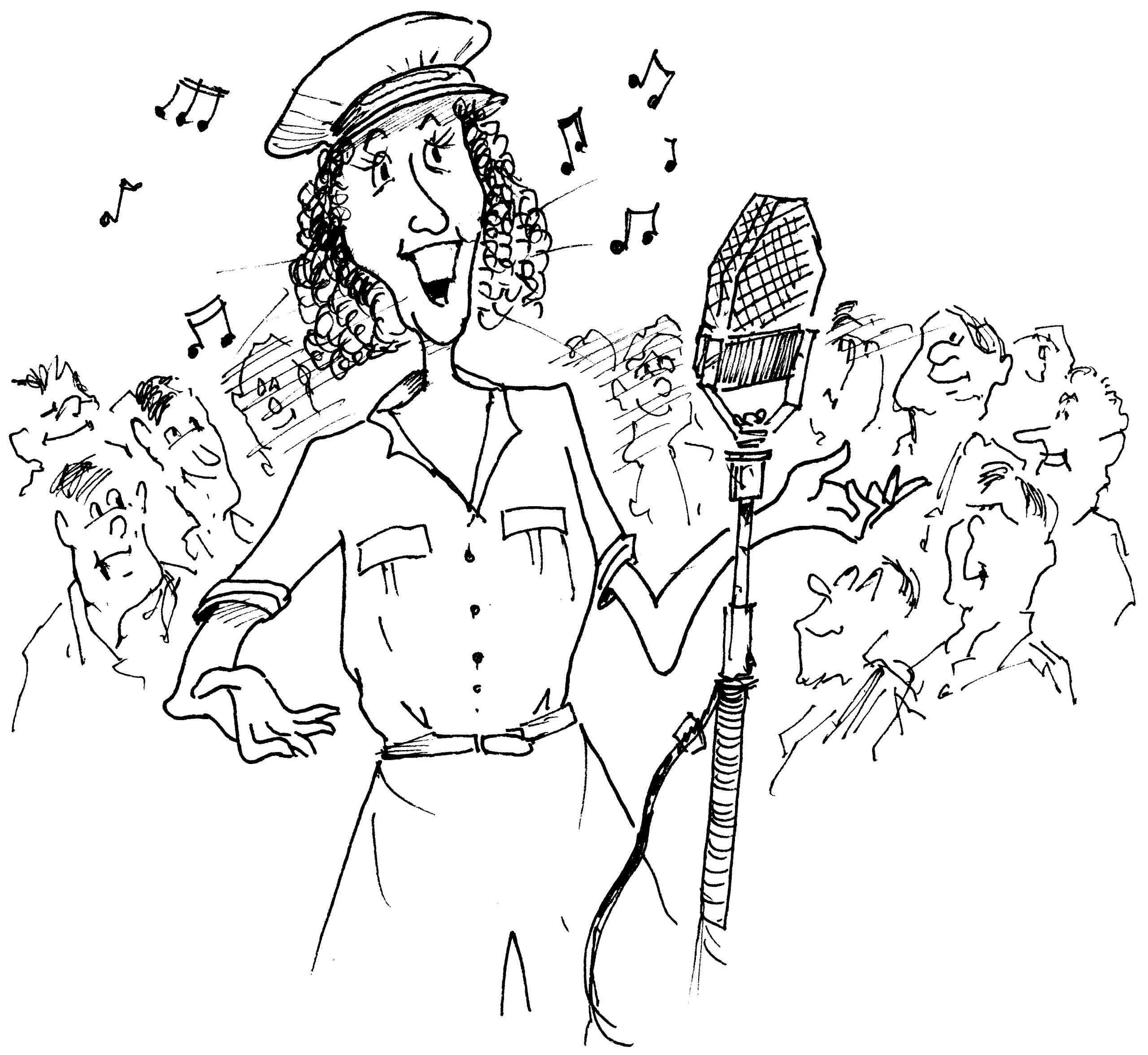
VERA LYNN
One ‘artiste’ prepared to travel as far
As Burma was that perennial star,
The ‘Forces’ Sweetheart’, songbird Vera Lynn.
With the voice of an angel, pencil-thin
And graceful to boot, with a war to win,
She understood that servicemen abroad
Were not only at risk of being bored,
But in danger, too, of feeling ignored.
So Vera did her bit. We’ll Meet Again,
Her most famous hit, a rousing refrain,
Was recorded in 1939.
It was hard graft, far from roses and wine,
Touring to these remote outposts of war.
To Egypt, India, Burma and more
Vera travelled. Boosting morale, for sure,
Was her mission. Back home (never a chore)
The popular star was happy to tour
To hospitals. Talking to new mothers,
She sent messages to husbands, brothers
And loved ones on her radio programme,
Sincerely Yours. From Cairo to Assam,
They tuned in to listen to Vera Lynn.
To ENSA. I’m not sure where to begin.
Battling with gusto through thick and thin,
They toured the world. The money was tight,
The talent ‘limited’: ‘Every Night
Something Awful’! This was a painful slight.
The Entertainments National Service
Association did not deserve this –
Well, not altogether. Stars of top rank
(Vera Lynn herself) had ENSA to thank
For sponsoring their tours. George Formby
Was another, with his ukulele.
Established stars such as Noël Coward
Joined Terry-Thomas and Frankie Howerd
From the ranks of the unknown (to date) –
A famous list of names, at any rate,
Whether current or for another day:
From Gracie Fields to Stanley Holloway;
From Peter Sellers to Kenneth Connor;
And from Jessie Matthews (who, good on her,
Loved to tour) to more lowly riff-raff.
For ENSA suffered (and you have to laff,
As wee Georgie might say) from a small pool
Of talent. Most of the acts, as a rule,
Were cobbled together and of low grade,
And a number quite smutty, I’m afraid.
Even the stars were pretty poorly paid,
But few really cared. Didn’t folk know
There was a war on? So, keep on the go,
That was the motto, and go with the flow.
The number of ENSA concerts given
Exceeded two and a half million
By the time the war was over. Not bad.
All in all, I’d say, a good time was had.

THE BOMBING OF COLOGNE
On May the 30th, a calm, clear night,
Through a cloudless sky, as the moon shone bright,
One thousand bombers took off for Cologne.
Now, Albert Speer claimed (he was not alone)
That they never expected such a raid.
The damage was horrific, I’m afraid.
Over five hundred died. Churches were razed,
Some (you’ll be suitably shocked and amazed)
From medieval times or older still.
Half of Cologne’s houses (a bitter pill)
And public buildings were lost. The homeless,
In their thousands, roamed the streets in distress.
Tramlines, sewers, electricity, gas,
All were disabled at a stroke, alas.
The Cathedral was saved, God knows how
(Perhaps He does?). You can visit it now,
Standing proud in the new, restored city,
A fine example of antiquity,
Testament to the imbecility
Of war. Nonetheless, what truly mattered
Was this: public morale was not shattered.
German industry, too, was on a roll.
Despite the apparently awful toll
Exacted by the bombers at Cologne,
The British ‘success’ was overblown.
The Ruhr, Germany’s industrial heart,
Remained resilient. Harris apart,
Many doubted the bombing strategy.
Sir Arthur, though, ploughed on quite happily.
Churchill and Roosevelt (in ’43,
At Casablanca, in January)
Had little doubt. They were quick to agree,
In their preparations for D-Day,
That the allies should do more in the way
Of combining their efforts. Bombs away!
The US were ready to strike by day –
Their bombers were better equipped, okay? –
But with meagre success, I’m bound to say.
This caused, of course, not a little dismay.
Back to top / Buy the book
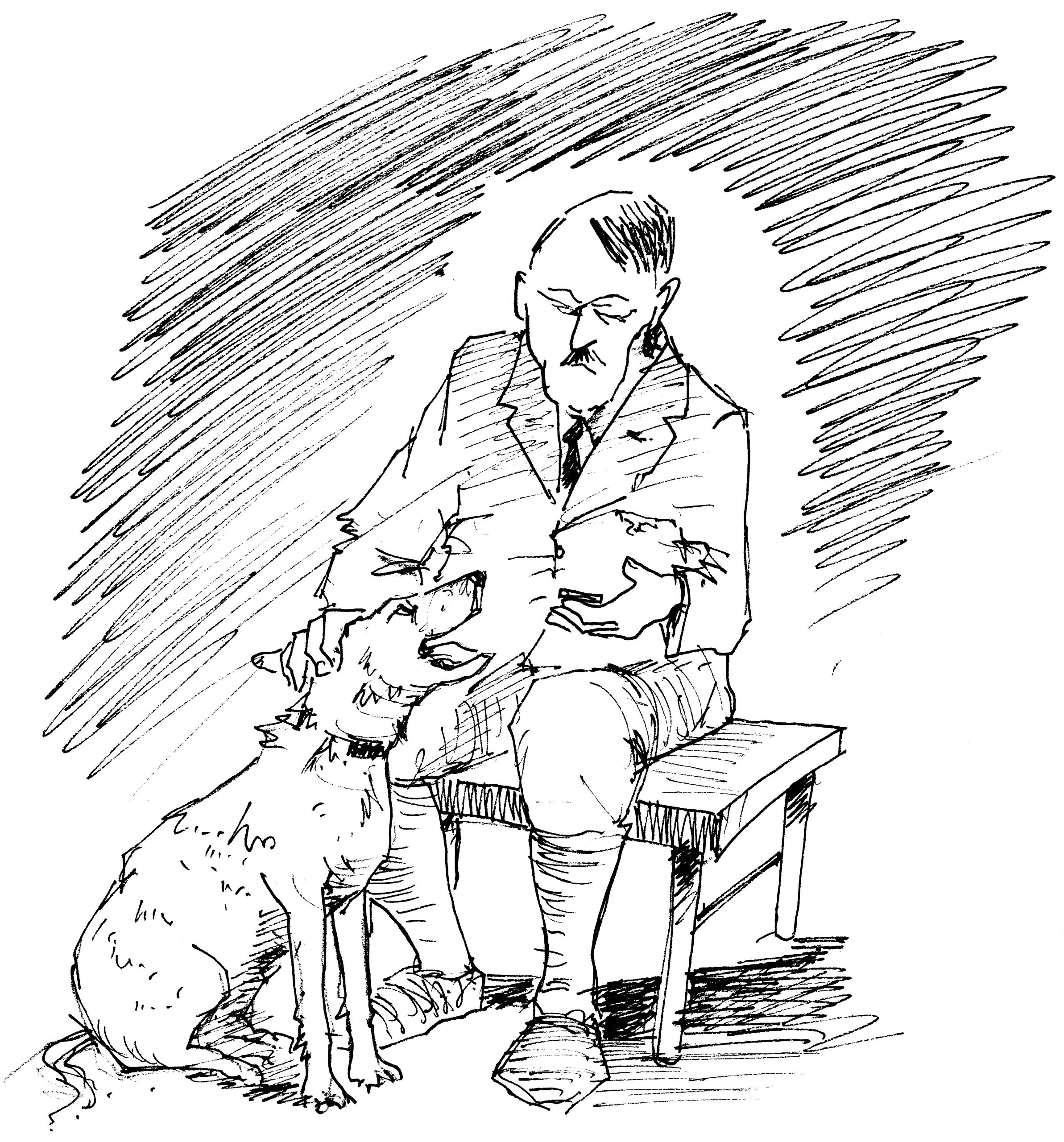
HITLER PREPARES FOR THE END
In case he should settle on suicide,
Hitler had ordered Himmler to provide
The wherewithal: capsules of cyanide.
Doubting now his former trustworthy aide,
The Führer paused. He was sorely afraid
That Himmler may have played a dirty trick –
Hard to believe, but far from fantastic –
And provided poison (hard to forgive)
That only knocked him out. He might still live,
To be taken to Moscow in a cage,
Perhaps… Yes, he was in a right old rage.
Animal lovers should now turn the page.
He took leave of his beloved Blondi,
His dog, second only (yes, honestly)
In his affections to Eva Braun.
Hitler fed her a capsule. Lying down,
The poor dog instantaneously died,
Painlessly, we hope. This was cyanide.

VE DAY
The PM was exhausted. On a roll,
To be sure, the war had taken its toll.
On VE Day he took lunch with the King,
With much mutual congratulating,
As indeed was only appropriate.
At 3 that afternoon Churchill saw fit
To broadcast to a grateful nation.
A great service of celebration
Was held at the Church of St. Margaret,
Westminster. Then the whole War Cabinet
And all the Chiefs of Staff, to their credit,
Trooped off to the Palace. The King and Queen,
In a special tribute rarely seen,
Led Churchill out onto the balcony
To greet the people (an amazing sea
Of faces, of smiles…) to a roar of cheers,
The like of which had not been heard for years.
Eight appearances he was asked to make,
Enough for an old man for goodness’ sake.
The two young Princesses, make no mistake,
Took part in the fun. Pretty and single,
The King allowed his daughters to mingle
(Chaperoned, of course) with the crowds that night,
Londoners at large. Sharing their delight,
Sisters Elizabeth and Margaret Rose
Had the time of their lives (one can only suppose).

